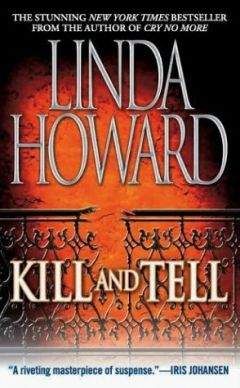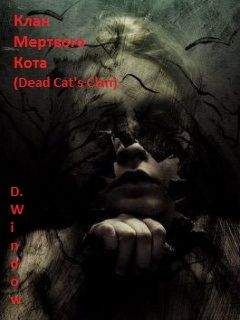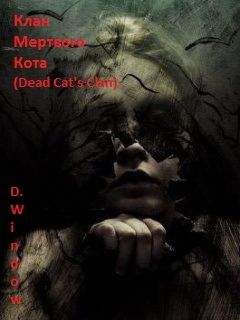Кроха - Dedication
На сайте mybooks.club вы можете бесплатно читать книги онлайн без регистрации, включая Кроха - Dedication. Жанр: Прочее издательство неизвестно,. Доступна полная версия книги с кратким содержанием для предварительного ознакомления, аннотацией (предисловием), рецензиями от других читателей и их экспертным мнением.
Кроме того, на сайте mybooks.club вы найдете множество новинок, которые стоит прочитать.

Кроха - Dedication краткое содержание
Dedication читать онлайн бесплатно
She felt sick, taking a more than foolish chance, leading him to a hiding place so close to the truth. But her own front porch was the only one near that had a hollow beneath it; all the others were just a couple of concrete steps, solid and impenetrable. And if she hid the shoes among scattered bushes, neighbors’ dogs might find and chew up the evidence.
No, her porch was the safest. No neighbors’ kids poked around there, and it had been a long time since any unruly dog, facing her own claws and teeth, had invaded her yard.
“I know the house,” Max said uneasily. “Why that house?”
“It’s the nearest one to the Dumpster that has a good place to hide them,” she said coolly. “And that house looks empty, not a soul around. I pass that place every day on my way to work. There’s no car in the drive and never a newspaper and the shades always the same, half drawn, like they’re on vacation.”
She hoped she sounded businesslike and detached when in fact she was shaking with guilt. “Will you send someone for them?” she said innocently.
“We will, pronto. And thanks for the help.”
Smiling, Kit hit the button that ended the call—and prayed that Lucinda and Pedric’s ID blocking was working. With a nationwide phone company, one never knew. She shivered at having put the snitch in her own neighborhood. I pass that place every day on my way to work. That did scare her, to draw Max’s attention there—but it made her laugh, too. A cat going to work every day?
And how could she implicate Lucinda and Pedric, when they were far away in Alaska?
Max Harper reached the attack scene as the caller hung up. He pulled to the curb in front of the western shop where the little alley ran back, flanking the bakery. The street was blocked by the medics’ van and two squad cars. Parking beside the white van, but before stepping out, he called Dallas, sent Dallas over to retrieve the snitch’s evidence.
“Shoes?” Dallas said. “Under the Greenlaws’ porch? How come, after all these weeks, the snitch just now finds discarded shoes in a Dumpster? And near the Greenlaws’?”
“Hell, I don’t know. I don’t think they’ve been working long up there, clearing out those dying pines. Just go get the shoes,” Max said. “And get shots of any footprints the snitch left,” though of course Dallas would.
He sat a minute in his truck watching the four medics crowded around Sam Bleak, a woman medic taking his blood pressure, Sam huddled in his wheelchair looking pale and frightened. Tekla stood beside him, her hand protectively on his shoulder. Her stance was stiff and military, her face filled with anger as she raged loudly at Officer Crowley. The six-foot-six officer looked silently down at her, no smile, no frown, his face as still as stone. Max stepped out of the truck, approached the medics and three officers. Watching Tekla scolding, he took a second look at her black jogging pants, at the smear of dirt on the cuff.
He moved closer. Was that not a smear, but a small tear? He thought about Ben’s photographs, the one that showed a tiny rip in the cuff of black jogging pants, pants with the same satin stripe as these. Stepping away, he dialed Dallas again. “You still there?”
“Just out the door.”
“Before you leave,” he said softly, “send Kathleen over here with the big camera for some detail shots.”
Hanging up, he headed across to sort out the Bleak couple, Tekla’s angry diatribe filling his ears like swarming bees. Trying to hold his temper, he didn’t see Joe Grey peering out from the truck bed, didn’t see Joe’s smile as the tomcat thought about the phone call from Kit, about Kit leading Max to what? New evidence? Or only more useless shoes?
When, in the truck, Max’s phone had buzzed and, answering, the chief had straightened up in the seat keenly alert to the caller, Joe had slid out from under the tarp and pressed against the back of the cab, listening.
Shoes? Joe had come sharply alert. From Max’s end of the conversation, from the fact that Max didn’t cross-examine the caller or ask his or her name—and from the way Kit had raced out of the conference room earlier, she had to be the snitch.
Having been gone so long from the village, having just gotten home and most of her thoughts on Misto, she hadn’t realized shoes might be important until this morning. In the conference room piled with shoes and photographs of shoes, listening to Max and the detectives, she’d raced off alone to fetch what she hoped would be evidence. She’d retrieved the shoes, she’d hidden them where they’d be safe, and then she’d called Max, and that made Joe smile. Kit, their scatterbrained Kit, was indeed growing up.
21
In the back of Max’s pickup, parked in the shadows of a cypress tree, Joe Grey reared up to peer over the side of the truck bed. He watched one of the four medics, a woman, tenderly clean up Sam Bleak’s forehead and his upper arm, cutting loose his torn shirt, wiping away blood from both injuries. Officer Crowley was present with two other uniforms, talking with the chief. Sam’s wheelchair lay fallen across a flower bed that edged a narrow brick walk. Sam sat on a carved wooden bench at the edge of the walk, which ran back between the buildings past the western shop, a boutique, a toy shop. A matching bench could be seen farther in between the windowed stores. Little lanes and half-hidden courtyards could be found all over the village, pleasing the locals and offering a longed-for charm to eager tourists. When Sam’s forehead and arm had been bandaged, a second medic, a slim young man, handed him a clipboard and pen.
“This is your release, Mr. Bleak, if you’re sure you don’t want to go to Emergency.”
Sam said he’d see his own doctor. Tekla leaned over, took the board from him, and began to read it out loud to him. As if he were too injured and unsteady—or too senile—to read the form himself.
When she had finished reciting the dull paragraphs, she handed it back for Sam to sign: a release of liability, to protect the medics and police. These days a human could hardly breathe without removing responsibility from everyone in sight. The day will come, Joe thought, when Clyde and Ryan have to sign a waiver so the garbageman can pick up our trash.
When the medics had finished with Sam and turned away, Joe dropped out of the truck into shadow and slipped beneath the shrubs at the curb. Hunkering there out of sight, he watched the three men and the woman gather their equipment back into the van, their blankets and oxygen tank and masks, their various black leather cases with the big syringes, packaged needles, and who knew what other kind of torture. As the van pulled away, Max began to question Sam, nodding to Officer Crowley to take notes.
“He ran right up behind me,” Sam was saying. “Tekla wasn’t here, she—”
“I’d left him for just a few minutes,” Tekla snapped, “left him here in what I thought was a safe place while I ran into the bakery. Does a person have to be on guard every minute in this village? Isn’t there a street patrol? I would think . . .”
Max stared at her with that dry, patient look. The same look as when he was about to strong-arm a drunk.
Joe looked up when Kathleen arrived. Stepping out of her car, she stood a moment taking in the situation; then she adjusted her camera and began to shoot the scene and the surround. Kneeling, the tall, slim detective photographed marks on the sidewalk the wheelchair had gone over, and close-ups of the area of broken flowers in the narrow strip of garden. She took time to lift latent fingerprints from the wheelchair, then photographed Sam and the chair at different angles; she included in her camera range several shots of Tekla’s pant legs. She was fast but careful and precise, covering the area thoroughly.
When Tekla started berating the chief again, Max asked her to step on over with Officer Ray. “She’s nearly finished photographing,” Max said. “She’ll want to interview you. You can wait on that other bench, back along the walk there.”
Tekla looked as if she’d refuse. Scowling, she moved closer to Sam as if to remain protective of him—as if Max or one of the officers might do him bodily harm. Max looked over at Kathleen and nodded.
Turning, Kathleen headed for her car, locked the big camera safely in the trunk. She hung the smaller camera over her shoulder, took Tekla by the arm, and gently ushered the shorter woman back along the walk to the bench. She sat Tekla down with just enough force to prevent her from striking out as she seemed inclined to do. Quickly Joe moved to the back of the cypress tree out of sight and scrambled up. Hidden in the heavy foliage, he slipped out along a branch that arched over the sidewalk nearer to Tekla and Kathleen, where he could listen.
And where, within seconds, Kit came slipping along behind him as if out of nowhere. Feeling the sway of the branch, he glanced back; she peered out at him half hidden, her mottled black-and-brown coat blending into the shaggy cypress. With a flick of her ears, she looked over.
Max was kneeling beside the wheelchair where he could look Sam in the face. “I know you’re shaken, Sam, but can you tell me what happened? Just take your time,” he said gently.
“He hit me so hard. I was sprawled on the ground before I knew what happened,” Sam’s voice was unsteady. “Like Tekla said, she’d gone on a quick errand, left me parked right here in the lane, said she’d only be gone a minute to the bakery. I was looking in the window at those fancy western boots, in plain sight of the busy street, when I was struck so hard from behind I thought a truck hit me.” Sam rubbed at the bandage on his forehead.
“I went sprawling, my wheelchair slid away, I heard someone running. I saw a dark figure running, but I was so dizzy . . .” He looked pitifully at Max, pale and shaken—but anger burned, too, deep in Sam’s eyes, and that shocked Joe. Sam Bleak, so mild and docile, suddenly burned with a cold rage that the tomcat had not seen before.
Max studied Sam with interest. “Did you hear anything before he hit your wheelchair?”
Sam shook his head. “Nothing. Nothing at all, the street was quiet. Then that terrible blow and I went over, I had no way to stop, no way to catch myself.”
“Can you describe the person? Do you remember his clothes? His height? Some idea of age? Was it a man, a boy?”
“A boy,” Sam said, looking directly at Harper. “Tan Windbreaker, I remember that. Old, worn jeans and scuffed leather boots. Running away, running from me so I didn’t see his face but . . . but I know him,” Sam said.
Sam Bleak was silent, looking at Harper. His next words shocked Joe and Kit right down to their paws, made Joe want to leap down and claw Sam’s lying face.
“The boy . . .” Sam said, “the boy . . . was Billy Young.”
Max stood up, narrowly watching Sam. “Are you sure of that?”
“He looked exactly like Billy, and dressed the same. I swear it was Billy Young.”
Max was silent, his look cold and hard. Joe wanted to shout, That’s a lie! What the hell are you up to?
“The boy who flipped me over,” Sam said, “it was Billy Young. That boy who works for Ryan Flannery—that boy who’s too young to be working in a construction crew. Who thinks he’s so smart because he has a grown-up job.”
Joe and Kit looked at each other, fear for Billy sparking between them, fear of what they didn’t understand. Max stood rigid and withdrawn. Maybe only the cats and his fellow cops saw that twitch at the side of his mouth, that quick inner fire that some humans wouldn’t notice. To the cats, even Max’s scent changed, had gone sharp with fury.
Sam felt tenderly at his bandaged forehead. “Same jacket, same clothes,” he repeated. “Running away. I shouted at him to stop, shouted his name.”
Again he was quiet, fingering his bandaged arm. Then, “Why would that boy do such a thing? What did he want? It was then, as I fell, that Tekla came around the corner, saw me tipped over.Tekla saw him, too, Captain Harper.” Sam’s fists clenched in anger. “Tekla knew him. He raced away—up the brick alley and into the next street. Tekla started to pick me up, to pick up the wheelchair, but I told her to go on, try to catch him.
“But he was gone,” Sam said shakily. “Just like those other attacks.” He put his head down on his hands as if he felt dizzy or was still very frightened.
Max glanced at his watch. “And then what happened?”
“I told Tekla to leave me be, in case anything was broken, and she called 911.” He did look pale. But, in truth, this was no more than a hoax, no more than a vicious lie.
“The siren came right away,” Sam said, “the medics’ van. Then more cops while the medics were looking me over, poking and prodding, and one of the cops—that tall one, the first one here, he started taking pictures. The medics kept arguing with me to let them put me in the van, but I didn’t want to go to a hospital, I’ve had enough of that. And then,” Sam said, “you got here, your pickup pulled in to the curb.”
“You’re sure it was Billy Young,” Max said coldly.
“Looked exactly like him. I only glimpsed the side of his face—high, thin cheekbones, brown hair, tan Windbreaker. Same clothes he usually wears,” Sam said, “same Windbreaker, same old, battered boots.”
“I’d like you to come into the station, you’ll need to fill out a report.”
Sam’s frown turned uncertain. He glanced across to where Tekla was deep in conversation with Kathleen Ray, as the detective recorded Tekla’s version on her phone, so the two interviews could be compared.
“If you file a complaint,” Max told Sam, “if you can identify him clearly, you can bring charges. If the boy has attacked others, it’s your responsibility to tell us what you can.”
Above in the cypress tree, Joe and Kit smiled at how cool Max was. The Bleaks had to know that Billy was the chief’s ward, or at least that he lived with the Harpers. So why would they set Billy up? For what possible reason? Simply because Tekla didn’t like Ryan, to get at Ryan through Billy, make them both look bad to Harper?
That didn’t make any sense. And now, as Max pushed Sam with questions, was Sam indeed getting nervous?
Could this all be Tekla’s setup? Had she forced Sam along with it, and now he was losing his resolve?
But then, what was Sam’s anger about? Was that all fake, too?
Whatever the answer, Joe thought, the Bleaks will find out soon enough what the chief already knows. This was a crime Billy couldn’t have committed, Billy was safe at the station when Sam was mugged; a dozen cops had seen him, including Max and all three detectives. The Bleaks, in a moment of misguided inspiration, had backed themselves into a corner, and didn’t that make Joe and Kit smile.
Most likely Tekla had tipped over the wheelchair herself, maybe eased it over gently so Sam wouldn’t in fact break any bones and create a real problem.
But they did manage to scrape his forehead and arm, Joe thought. Maybe they didn’t mean to do that, maybe that part was an accident as they performed their little charade. And that made him smile all the more.
The question is, why would they go to such lengths to get Billy in trouble? Oh, but Tekla would, Joe thought, just out of meanness. Or, he wondered, did they do this as some sort of diversion?
Похожие книги на "Dedication", Кроха
Кроха читать все книги автора по порядку
Кроха - все книги автора в одном месте читать по порядку полные версии на сайте онлайн библиотеки mybooks.club.




